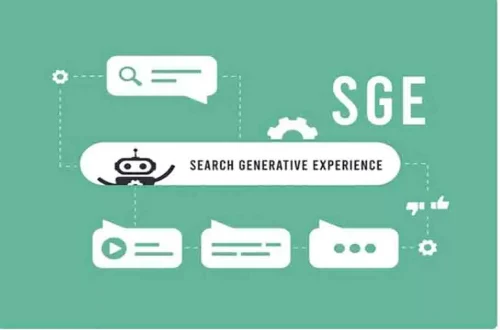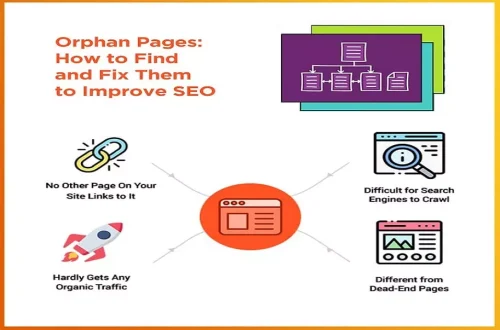The world of SEO is evolving faster than ever, with emerging technologies and user behaviors redefining how businesses approach digital visibility. As we move closer to 2025, staying ahead in the SEO game requires not only understanding the future of SEO but also crafting the best SEO strategy 2025 to meet these changes.
From the growing influence of artificial intelligence (AI) to shifts in search intent and algorithm updates, the need for future-proof strategies has never been greater. This blog explores future SEO trends, the role of AI, and actionable tips to build a resilient SEO approach for the coming years.
Why Your SEO Strategy Needs an Update for 2025
Search engines are evolving to prioritize user intent, context, and high-quality content. Adhering to outdated practices may not only hinder your rankings but also negatively impact your credibility with users. Crafting a new SEO strategy aligned with the latest trends is essential for several reasons:
- Increased Competition: With more businesses investing in digital marketing, the competition for organic rankings is fiercer than ever.
- Algorithm Changes: Google and other search engines are rolling out frequent updates focused on improving user experience and combatting outdated tactics.
- Technological Advancements: The rise of AI and machine learning is transforming how content is ranked and discovered.
To remain competitive, businesses need to embrace future SEO trends and adapt their strategies accordingly.
Key Trends Shaping the Future of SEO
To create an impactful SEO strategy 2025, you must first understand the trends that will define the digital marketing landscape.
AI for SEO
The use of AI in SEO has grown rapidly, changing how businesses approach keyword research, content creation, and data analysis. How AI is changing SEO is a topic of growing importance, as tools like ChatGPT, Jasper, and Surfer SEO become integral to crafting optimized content.
Key Benefits of AI in SEO:
– Automating repetitive tasks like keyword tracking and performance analysis.
– Generating content ideas tailored to user intent and search behavior.
– Enhancing personalization for better user engagement.
If you’re wondering how to use AI for SEO, start with tools that analyze search trends and provide actionable insights to refine your strategy.
Voice Search Optimization
With the increasing use of smart assistants like Alexa, Google Assistant, and Siri, optimizing for voice search is critical. This means targeting long-tail keywords and question-based queries. For instance, a new SEO strategy might involve creating FAQ sections that directly address common voice search phrases.
Mobile-First Indexing
Google’s shift to mobile-first indexing underscores the importance of a mobile-optimized website. Ensuring fast loading times, responsive design, and seamless navigation is crucial to ranking well.
E-E-A-T as a Ranking Factor
Google’s focus on Expertise, Experience, Authoritativeness, and Trustworthiness (E-E-A-T) will continue to influence rankings. Businesses should prioritize building high-quality, credible content to align with this framework.
Building the Best SEO Strategy for 2025
The best SEO strategy 2025 requires a multi-faceted approach that embraces innovation while adhering to SEO fundamentals.
- Embrace AI-Powered Tools
As AI becomes a cornerstone of digital marketing, leveraging it effectively can give you a competitive edge.
How to Use AI for SEO:
Keyword Research: Tools like SEMrush and Ahrefs now integrate AI capabilities to identify high-performing keywords faster.
Content Optimization: AI-driven platforms like Clearscope suggest keyword density and formatting improvements.
Predictive Analytics: Use AI to forecast search trends and adapt your content strategy proactively.
- Focus on Semantic Search
Search engines now interpret queries contextually, emphasizing the importance of semantic search. To align with future SEO trends, prioritize content that addresses user intent comprehensively.
Tips for Semantic Optimization:
– Use related keywords and synonyms naturally throughout your content.
– Answer common questions within your niche to improve relevance.
– Structure your content to enhance readability, using bullet points and concise paragraphs.
- Optimize for Visual Search
Visual search, powered by platforms like Google Lens and Pinterest, is a rising trend. Ensure your images are optimized for search by using descriptive file names, alt text, and schema markup. - Invest in Video Content
Video continues to dominate user engagement metrics. To align with the future of SEO, focus on creating high-quality video content that answers user questions and drives traffic.
Key Tips:
– Optimize video titles and descriptions with target keywords.
– Use video transcripts to enhance content discoverability.
– Publish on platforms like YouTube, which acts as a secondary search engine.
- Improve Core Web Vitals
Google has emphasized the importance of Core Web Vitals, which measure user experience factors like page speed and interactivity. Prioritize technical SEO to meet these standards.
Monitoring and Adapting to New SEO Trends
SEO is not static; it requires continuous monitoring and adaptation. Here’s how you can stay on top of new SEO trends:
- Subscribe to Industry Updates: Follow trusted sources like Moz, Search Engine Journal, and Google Webmaster Blog.
- Conduct Regular Audits: Evaluate your website’s performance periodically to identify areas for improvement.
- Experiment with Emerging Technologies: Test AI tools, schema markup, and other innovations to discover what works best for your audience.
The Future of SEO is AI-Driven
The growing role of AI in SEO cannot be overstated. Businesses that embrace AI solutions will find it easier to scale their strategies and adapt to the dynamic nature of search algorithms.
Why AI is Key to the Future of SEO:
Efficiency: AI reduces manual effort, enabling marketers to focus on strategy.
Precision: Tools powered by AI deliver accurate insights that drive results.
Scalability: From local SEO to enterprise strategies, AI adapts to diverse needs.
By understanding how AI is changing SEO, you can future-proof your efforts and maintain a competitive edge.
Building Resilient SEO Strategies for Tomorrow
Future-proofing your SEO strategy for 2025 means staying ahead of the curve and embracing innovation. From leveraging AI-powered tools to addressing new SEO trends like voice and visual search, businesses must prioritize adaptability and user experience to remain competitive.
The future of SEO is rooted in understanding user intent, delivering high-quality content, and embracing emerging technologies. By implementing the insights and strategies shared here, you’ll be well-equipped to craft the best SEO strategy 2025 that drives sustainable traffic growth and ensures long-term success.
Start planning today to secure your place in the evolving digital landscape of tomorrow.




